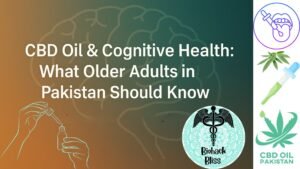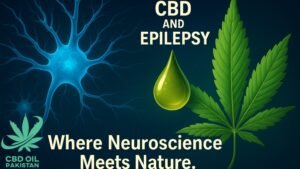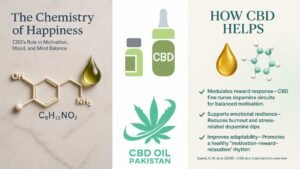Cannabidiol (CBD), a powerful non-intoxicating compound found in the cannabis plant, continues to attract attention for its therapeutic potential. Beyond its use in managing pain and inflammation, emerging research suggests that CBD can cross the blood-brain barrier (BBB)—a vital characteristic for treating neurological conditions.
This blog explores how CBD’s ability to penetrate the BBB may position it as a natural “Trojan horse” for brain healing—and a promising alternative in the battle against chronic neurological disorders.
What Is the Blood-Brain Barrier?
The blood-brain barrier is a protective shield of tightly packed endothelial cells lining the brain’s capillaries. It prevents harmful toxins, pathogens, and fluctuating blood components from entering the brain.
However, this protective mechanism also poses a major obstacle to many conventional drugs intended to treat Alzheimer’s, Parkinson’s, epilepsy, and other CNS-related diseases. According to Pardridge (2012), nearly 98% of small-molecule drugs and 100% of large-molecule drugs fail to reach the brain due to the BBB.
Can CBD Cross the Blood-Brain Barrier?
Yes. CBD is lipophilic, which allows it to passively diffuse across the blood-brain barrier. Studies indicate that cannabinoids, including CBD, can modulate endothelial cell permeability and BBB transport proteins, allowing them to bypass traditional limitations (Hind et al., 2016).
✅ This means CBD can potentially deliver healing compounds directly to the brain, offering hope for hard-to-treat neurological diseases.
CBD as a Trojan Horse: Myth Meets Medicine
In Greek mythology, the Trojan Horse was used by the Greeks to infiltrate Troy under the guise of a gift. Similarly, researchers propose that CBD may function as a Trojan horse—crossing the BBB and facilitating the delivery of therapeutic molecules into the brain (Campos et al., 2016).
This “Trojan Horse” capability is gaining traction in biomedical research. Nanotechnology-based approaches are exploring CBD-infused carriers for enhanced delivery of neuroprotective drugs.
Neurological Benefits of CBD Oil
1. CBD for Chronic & Neuropathic Pain
CBD modulates pain perception via the endocannabinoid system and the TRPV1 receptor, which plays a key role in pain signaling (Fine & Rosenfeld, 2013).
2. CBD for Alzheimer’s Disease
CBD may reduce neuroinflammation by downregulating glial cell activation and oxidative stress (Esposito et al., 2007). These effects are particularly important in Alzheimer’s patients where inflammation weakens the BBB.
3. CBD for Epilepsy and Seizure Disorders
The FDA-approved drug Epidiolex contains pure CBD and has been shown to significantly reduce seizures in patients with Dravet syndrome and Lennox-Gastaut syndrome (Devinsky et al., 2017).
A Challenge to Big Pharma?
As CBD demonstrates efficacy in treating conditions traditionally managed by opioids and synthetic drugs, it poses a competitive threat to pharmaceutical companies. CBD’s non-addictive nature and multi-target action reduce the need for harmful medications—especially opioids.
In fact, Hurd et al. (2019) demonstrated that CBD helped reduce opioid cravings and anxiety in individuals recovering from addiction, showing promise as a natural alternative in public health interventions.
Why This Matters for You
For consumers in Pakistan looking for natural brain support, CBD oil may offer a safe and effective way to promote mental clarity, reduce stress, and support neurological function.
🛍️ Order Full Spectrum CBD Oil in Pakistan with Cash on Delivery
Available now at CBD Vape Pakistan
For Islamabad customers, self-collection is also available via coordination from DHA Phase 1.
Final Thoughts: CBD & Brain Health Go Hand in Hand
CBD’s potential to cross the blood-brain barrier opens new avenues for healing and neurological wellness. Whether acting independently or enhancing the delivery of other compounds, CBD oil could reshape the future of brain health therapy.
As public awareness grows and the scientific evidence becomes stronger, CBD stands as a beacon of hope in integrative medicine—naturally supporting the brain’s most critical functions.
✅ Scientific References (APA Format)
Campos, A. C., Moreira, F. A., Gomes, F. V., Del Bel, E. A., & Guimarães, F. S. (2016). Multiple mechanisms involved in the large-spectrum therapeutic potential of cannabidiol in psychiatric disorders. Philosophical Transactions of the Royal Society B: Biological Sciences, 367(1607), 3364–3378. https://doi.org/10.1098/rstb.2011.0389
Devinsky, O., Cross, H., Laux, L., Marsh, E., Miller, I., Nabbout, R., … & Cannabidiol in Dravet Syndrome Study Group. (2017). Trial of cannabidiol for drug-resistant seizures in the Dravet syndrome. New England Journal of Medicine, 376(21), 2011–2020. https://doi.org/10.1056/NEJMoa1611618
Esposito, G., De Filippis, D., Maiuri, M. C., De Stefano, D., Carnuccio, R., Izzo, A. A., & Iuvone, T. (2007). Cannabidiol inhibits inducible nitric oxide synthase protein expression and nitric oxide production in β-amyloid stimulated PC12 neurons through p38 MAP kinase and NF-κB involvement. Neuroscience Letters, 399(1-2), 91–95. https://doi.org/10.1016/j.neulet.2006.11.064
Fine, P. G., & Rosenfeld, M. J. (2013). The endocannabinoid system, cannabinoids, and pain. Rambam Maimonides Medical Journal, 4(4), e0022. https://doi.org/10.5041/RMMJ.10129
Hind, W. H., England, T. J., & O’Sullivan, S. E. (2016). Cannabidiol protects an in vitro model of the blood–brain barrier from oxygen–glucose deprivation via PPARγ and 5-HT1A receptors. British Journal of Pharmacology, 173(5), 815–825. https://doi.org/10.1111/bph.13452
Hurd, Y. L., Spriggs, S., Alishayev, J., Winkel, G., Gurgov, K., Kudrich, C., … & Salsitz, E. (2019). Cannabidiol for the reduction of cue-induced craving and anxiety in drug-abstinent individuals with heroin use disorder: A double-blind randomized placebo-controlled trial. American Journal of Psychiatry, 176(11), 911–922. https://doi.org/10.1176/appi.ajp.2019.18101191

What Is CBD Oil? The Complete 2025 Beginner’s Guide for Pakistan

🧠 CBD Oil & Cognitive Health: What Older Adults in Pakistan Should Know

🧠 CBD Oil and Epilepsy: The Science Behind Seizure Control in Pakistan

CBD and Dopamine: The Science of Motivation & Happiness

🧠 CBD Oil & ADHD in Pakistan: What 2025 Research Reveals About Focus, Calm & Neurobalance

Peer-Reviewed CBD Studies (Last 3 Months): What 2025 Research Reveals About Safety & Anxiety Relief

What Is CBD Oil? The Complete 2025 Beginner’s Guide for Pakistan
What Is CBD Oil? Understanding Pakistan’s #1 Searched Wellness Supplement If you search “CBD Oil Pakistan”, you’ll find dozens of new sellers, inconsistent information, and

🧠 CBD Oil & Cognitive Health: What Older Adults in Pakistan Should Know
🧬 The Ageing Brain: Why Cognitive Health Matters As Pakistan’s population ages, more adults are confronting memory lapses, slower recall, and mental fatigue — subtle

🧠 CBD Oil and Epilepsy: The Science Behind Seizure Control in Pakistan
When Modern Science Still Searches for Answers Despite centuries of medical advancement, modern science still struggles to fully understand why epilepsy happens. The condition—marked by

CBD and Dopamine: The Science of Motivation & Happiness
From Stress to Success with Full-Spectrum Botanical Support In a world where hustle culture is the norm and burnout is pervasive, many of us ask:

🧠 CBD Oil & ADHD in Pakistan: What 2025 Research Reveals About Focus, Calm & Neurobalance
Understanding ADHD Beyond the Myths ADHD — Attention-Deficit/Hyperactivity Disorder — is not a lack of discipline or willpower. It’s a neurodevelopmental condition that affects dopamine

Peer-Reviewed CBD Studies (Last 3 Months): What 2025 Research Reveals About Safety & Anxiety Relief
In the past three months of 2025, peer‑reviewed clinical research has produced clear, actionable findings about hemp‑derived CBD: one large randomized trial focused on safety

